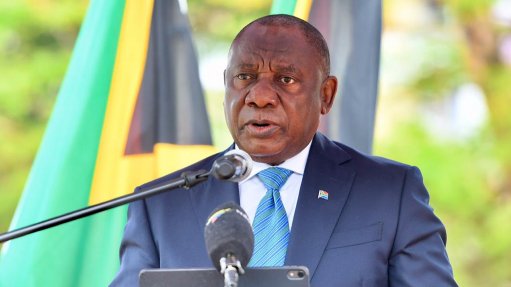
President Cyril Ramaphosa
With World Aids Day set to take place on Tuesday, President Cyril Ramaphosa has touted a combination of medical breakthroughs and fundamental behavioural changes as catalysts to end Aids as a public health threat within the next ten years.
In his weekly column to the nation, he said he was encouraged by the recent pre-exposure prophylaxis (PrEP) study, which showed that long-acting injections once every eight weeks were better than the daily tablet used for HIV prevention.
Ramaphosa added that the end of AIDS would be achieved through the empowerment of young people, women and other people at risk.
“While we have reduced deaths and new infections, we still are far from reaching the goal we committed ourselves in 2016 of achieving a 75% reduction in HIV infections by 2020. If we succeed in doing so, we are likely to end Aids as a public health threat by 2030,” he said.
He highlighted the need for empowerment through access to information, advice and support, as well as access to education and economic opportunities, especially for young women.
Empowerment, he said, meant that every person had access to testing, treatment and other health services.
The educational and economic empowerment of adolescent girls and young women must be encouraged and Ramaphosa stressed that young women must be able to make their own decisions about every aspect of their lives, including their sexuality and sexual behaviour.
As the country marks 16 Days of Activism for No Violence Against Women and Children, Ramaphosa said the country needed to work even harder to address the unequal relations between men and women as it contributed to gender-based violence and to the spread of HIV.
However, he said it was encouraging that HIV infections in adolescent girls and young women had significantly declined in the last decade.
Government’s treatment programme had reduced the number of deaths due to Aids by 60%, Ramaphosa revealed.
He explained that since the outbreak of the coronavirus in the country, with the nation-wide lockdown and the pressure on health facilities, many HIV, Aids and tuberculosis services had suffered, posing a challenge for people testing and starting antiretroviral treatment.
“We need to work harder on HIV prevention among key populations, including sex workers, men who have sex with men, and people who inject drugs. We must end the stigma and discrimination towards these populations. We cannot hope to end HIV if we ignore the needs, concerns and rights of any part of our population,” he said.
Ramaphosa added that the stigma and discrimination towards these populations must end, saying the country cannot hope to end HIV if the needs, concerns and rights of any part of the population were ignored.
Meanwhile, Ramaphosa also said increased efforts must be made to medically circumcise young men to reduce their risk of acquiring HIV.
“The people of South Africa have come so far, endured so much and made such great progress in the fight against HIV, Aids and Tuberculosis. On this World Aids Day, which is taking place in the shadow of another devastating pandemic, let us intensify both our resolve and our actions to confront and overcome Aids once and for all,” he concluded.